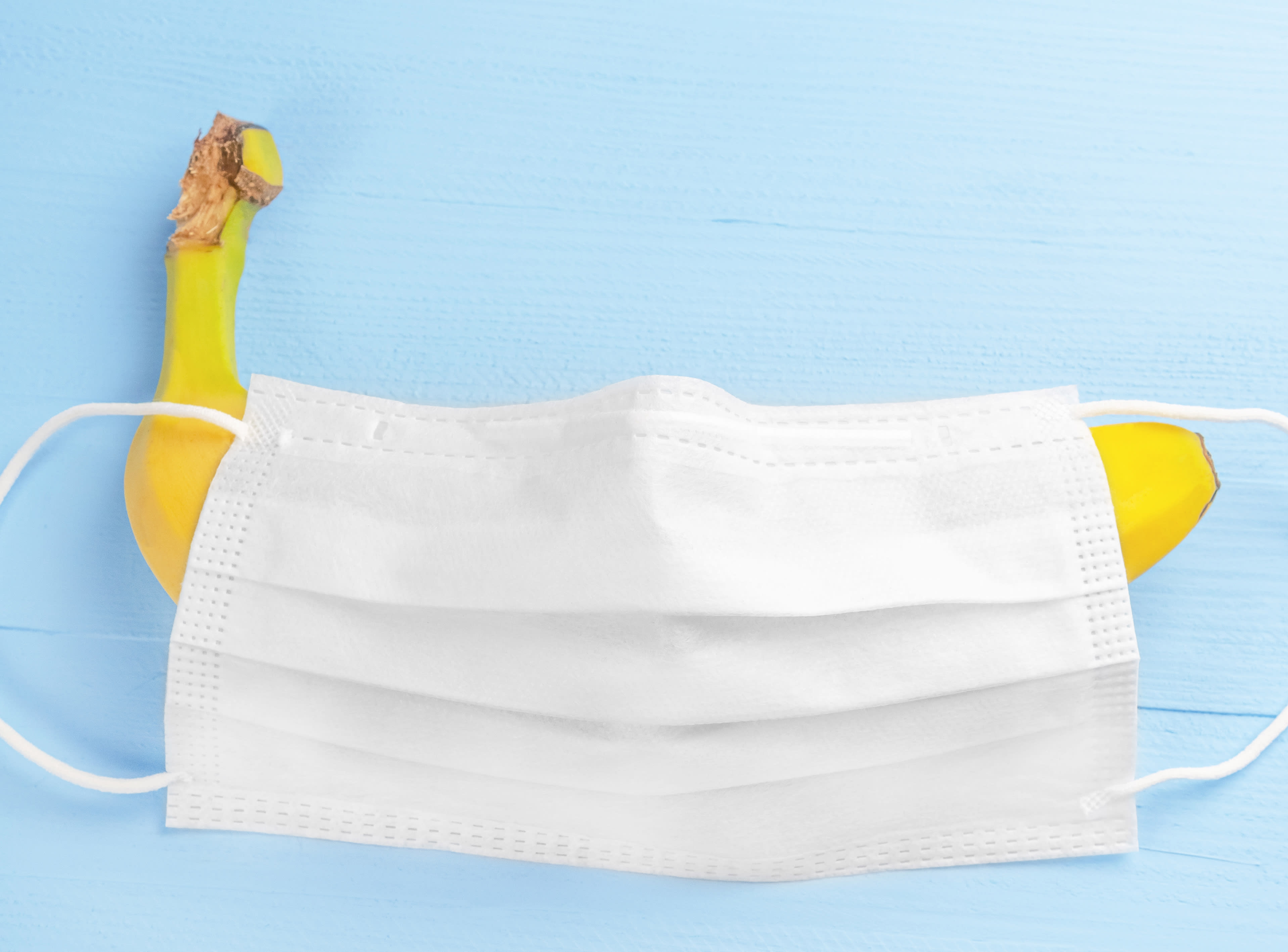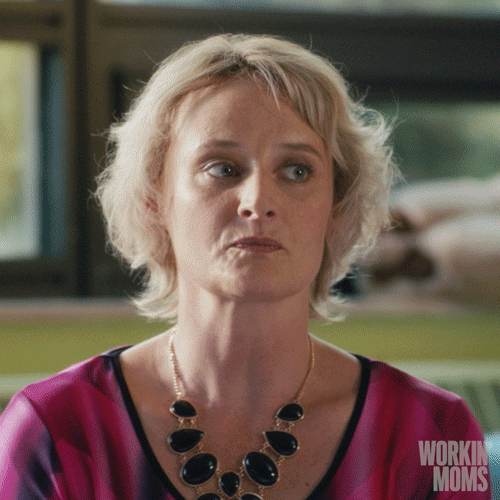Safer sex in the age of COVID-19: A quick ’n dirty guide

Whether you’re 10 years in with your SO and going strong, single and looking for sex, or anywhere in between, the global pandemic has changed *everything*. Like it or not, it’s our current reality. Those of us in longterm couples have either been smooshed together in isolation, or separated (again, in isolation), depending on the particulars of our personal arrangements and risk factors, and those among us who are actively (or passively) searching for sex, love, or both, have been presented with a whole new set of challenges—as though there weren’t enough barriers to intimacy without the need of a six-foot pole.
There’s no point in pretending it doesn’t suck hard, and there’s no point in beating yourself up for any less-than-prudent sexual contact you’ve had up to this point. I mean, the situation at large is impossible on a good day. But what you can do is be informed and refuse to be coerced if you don’t feel right about something.

What we know so far
Particularly for those in the dating game right now (although everyone can benefit from more clarity), understanding the quick ’n dirty facts on sex and COVID transmission is key to making safer choices. Disclaimer: since COVID is still relatively new, the facts are still unraveling. Here’s what we know thus far:
- Since COVID mostly spreads via the air, from droplets produced when people cough, sneeze or speak, all forms of in-person contact carry a risk, and that definitely includes sex.
- Direct contact with saliva can easily transmit the virus, which makes kissing risky, particularly if you’re not sure who your partner has been in contact with.
- COVID has not yet been found in vaginal fluid.
- The virus has been found in the feces of those who’ve tested positive, meaning that rimming (AKA oral-anal contact), as well as anal sex may spread COVID. If you go there, know that using a dental dam can reduce one’s contact with both saliva and feces during oral-anal contact, and a condom offers protection during anal sex.
- A recent study found COVID in the semen of men with active infections as well as those who had recovered. A this point, however, it’s not clear if it can be transmitted sexually via a guy’s cum.

‘Digital dating’
While there are obvious drawbacks to digital dating (like living your entire life in a Zoom bubble), there are some fascinating silver linings too. For 24-year-old Kait Diane, dating apps have helped her make meaningful and unexpected connections, “filling the void that social distancing has created in socializing.” “[Before I would] never have video chatted with someone I just met. It scared me,” says Diane. “Now I feel like putting a face to a name whenever helps me make a better connection.”
In fact, many dating apps are harnessing their platforms to educate users about the need for social distancing and COVID-level hygiene. Tinder, for instance, published a blog cautioning their users, “Wanting to meet your potential new thang is completely reasonable. However, staying inside and doing your part to stop the spread of this virus is exponentially more important than going out to meet them IRL (in real life).” Match Group, which owns Plenty Of Fish, as well as Tinder, Hinge, OKCupid and Match.com has gone so far as to launch The Dating While Distancing Hotline, a free service that allows users to ask an expert’s advice on the current dating landscape—how to best organize a virtual date, for example.
If none of this sounds appealing, I get you, but desperate times call for digital measures, it seems. But while ‘digital dating’ is all well and good, sometimes an in-person meeting is simply necessary: to stop a budding relationship from falling apart, or to stop yourself from going insane, among other reasons. Personally, if this was me, I might insist that my would-be partner and I both get tested and wait for our results (while in quarantine) before attempting a meet-up—and I’d have to trust the person enough to go this route. Fact: there are no risk-free options.

Precautions you can take
The Centers for Disease Control and Prevention and the World Health Organization (the two most prominent authorities on containing COVID), have refrained from offering explicit advice on how to handle sex and intimacy, seemingly neglecting the fact that misinformation spreads even more easily than the virus. Thankfully, the New York City Department of Health and Mental Hygiene has offered the world some helpful tips for safer sex during these truly trying times which I have taken the liberty of spinning just for you:
1. The only risk-free sex is masturbation, though it’s always important to wash your hands (and sex toys) with soap and water before and after sex.
2. Sex with a trusted, live-in (consenting) partner is the next safest thing. The smaller the circle of people you have (sexual) contact with, the lower the risk.
3. It’s best to limit close/sexual contact with anyone you don’t live with (I’m curious how many couples have decided to move in together during this time!).
4. Talk about COVID risks with your partner(s) just as you would other safer sex topics (like testing, condoms, contraception). If you’ve always had a hard time with this, here’s your chance to hone those communication skills. Be sure to ask your partner if they have symptoms or have had symptoms in the last 14 days, and if they’ve been diagnosed with COVID at any point.
5. People are considered likely no longer infectious about 10 days after their last symptoms manifested, though testing is the only way to be sure, as some people are straight-up asymptomatic. Also, just because you have recovered does not mean you are immune from re-infection.
6. If you typically meet would-be sex partners online or make your living with sex work, consider shifting to video dates, sexting or chat rooms for the time being. If you’re in a couple that doesn’t live together and are self-isolating, video sex can churn the fires and offer fodder for fantasy—unfamiliar can be jarring, but also sexy.
7. Wearing a face mask during sex may sound insane, but it does add an extra layer of protection, and personally I think there’s a lot of kink potential with mask-wearing. The NYC Health Department counsels people to “be creative with sexual positions and physical barriers, like walls, that allow sexual contact while preventing close face-to-face contact.”
8. Wash up (with soap and water) before and after sex.
9. People with lung or heart disease, diabetes, cancer or a weakened immune system, including those with a detectable HIV viral load and a low CD4 count, or who are 60+ are potentially at higher risk, so may want to consider taking a sexual hiatus, particularly if they don’t live with their partner(s).
The bottom line
The bottom line is this: times are crazy, but the basic principles of harm reduction remain the same. Be as safe as possible given your personal circumstances, communicate openly and honestly with any sexual partners, and respect others’ decisions regarding intimate touch, even if they don’t mirror your own. We shall get through this, y’all.




